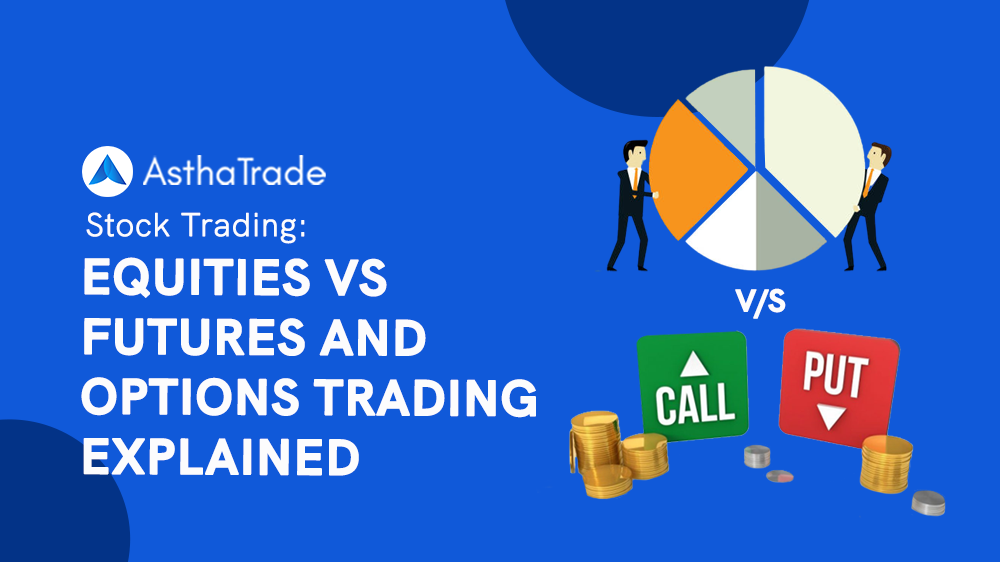There are several financial products, also called financial instruments, bought or sold in a stock market. Now, what do they actually do?
The central concept behind a financial product is that it allows you to convert your currency and trade them to buy or sell any financial product in a market.
Many financial instruments are traded in stock markets, viz., shares, bonds, mutual funds, futures, options, etc.
Today there is the internet, these financial instruments have become more accessible, and you can now easily trade in a stock market through online trading. Isn’t it simple?
This article will help you understand the essential differences between Equities and Futures and Options trading. Come, let’s dive right in.
Equity
First, we have equities trading. Equities are nothing but the shares of a company.
When a person buys shares of a company, they become the partial owner or shareholder of the company that issued the shares.
Let us understand in simpler terms now. It depicts the person who holds the equity in that company. Hence, if you buy shares of a company, you are buying equities.
For example, let us just assume that Raj wants to open his farm with the business of buying calves, feeding them for a year, and selling them after a year.
By judging his business, I invested in it, considering it a good business. He will use this money to grow his business.
In the future, if everything goes as per plan, the business will grow, and so will my share value. However, if it doesn’t, the business will suffer, and my share price will fall too.
People invest in equities trading because of their potential for high returns. After all, who doesn’t want high returns? The value of equities increases when the value of shares increases.
Companies pay dividends out of their profits to investors who have bought shares of their company. These dividends are paid periodically and are not guaranteed regularly.
However, dividends offer significant benefits to the investors as income when available. Also, one can sell these shares when their prices have increased and make profits.
Equities come with an inherent risk as they don’t offer fixed or guaranteed returns and fluctuate based on a share price.
Futures Trading
Let us now talk about Future Trading and how it works.
Futures are financial instruments that make the buyer and seller trade on a predetermined date and price.
Futures trading comes with an obligation of an expiration date.
Also, the future price is dependent on another derivative and hence has no inherent value. Futures come with an expiration date, unlike other financial instruments.
This way, the futures are different from other financial instruments.
Future contracts can be transferred, allowing the buyer or seller to move out of the contract transferring the ownership to some other party.
Options Trading
Options contracts are financial instruments that give the buyer the right to trade (buy or sell) an asset at a specific price within the contract period.
Unlike futures trading, options trading gives the investor the right, but not the obligation, to buy or sell an asset at a specific price and time.
If a person purchases any share with a prediction that it will yield profits in the future, there are chances that this prediction can go wrong due to the volatile and unpredictable nature of markets.
To save oneself from such potential losses, you can use the options instrument to the agreement, which lets you sell the share at the predetermined price.
However, it is necessary to carry out this sale on or before the expiration date.
Investors can make money or hedge their current investments using futures and options.
When investing in Equities trading or Futures and Options, the customers must be aware of the inherent risks involved.
Analyzing prime differences between equities trading and futures and options trading, with a proper understanding of the assets you are investing in.
To mitigate these risks, customers can take the help of financial advisors like Rupeezy (rupeezy.in), who offer expert market research to investors empowering them with their rich experience.
Open free Demat accounts with Astha Trade, which has garnered the trust of investors and traders over the years to make informed and well-versed decisions.
We hope it helps you weigh your trading options better from now on!


Good post to read